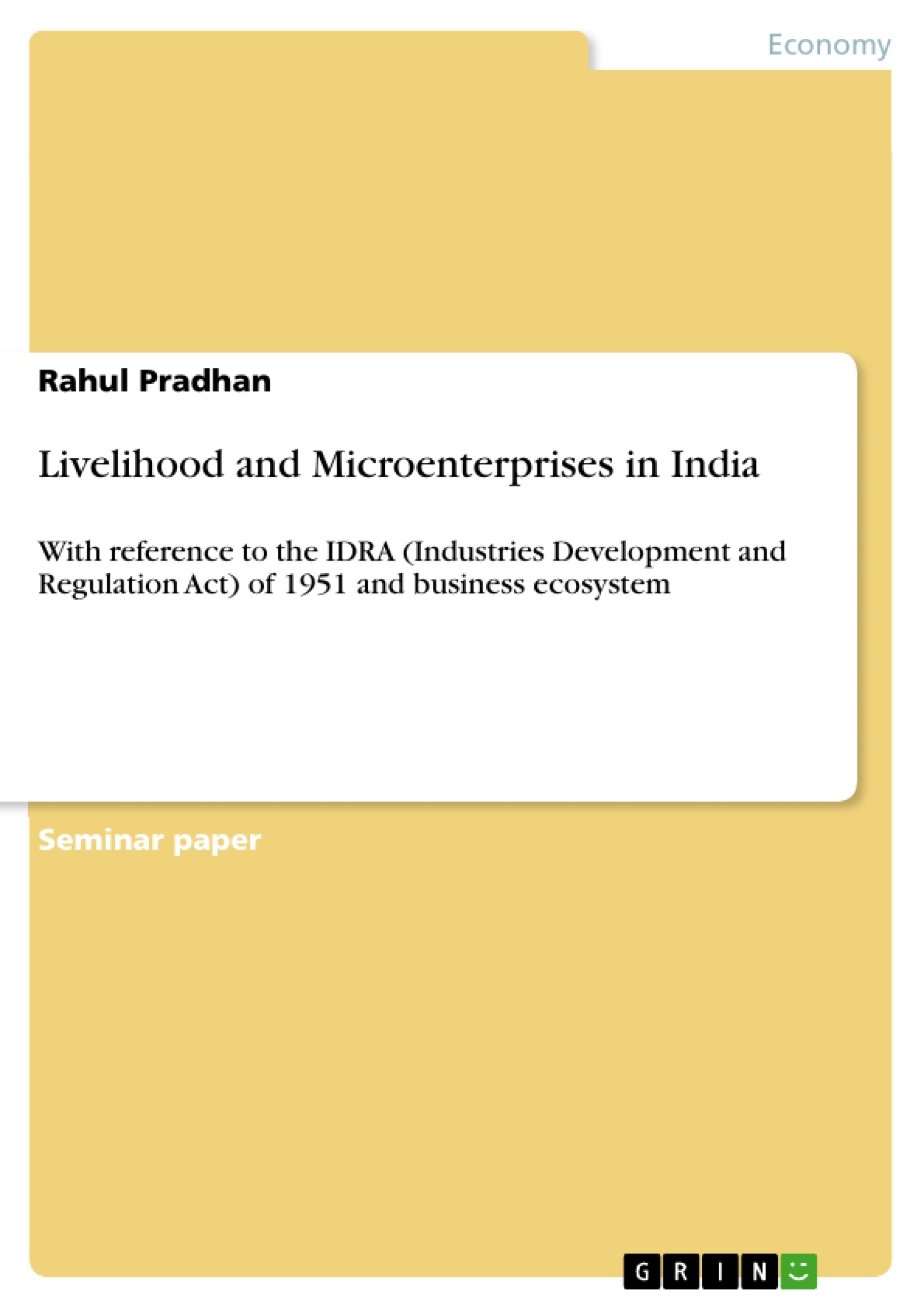The project at large will be dealing with the aspiration of the youth, the people who intend to build their startup and grow like the successful entrepreneurs.
The term “entrepreneurship” comes from the French verb “entreprendre” and the German word “unternehmen”, both mean to “undertake”. Bygrave and Hofer in 1891 defined the entrepreneurial process as involving all the functions, activities, and actions associated with perceiving of opportunities and creation of organizations to pursue them. In simple, entrepreneurship is the act of being an entrepreneur, which can be defined as "one who undertakes innovations, finance and business acumen in an effort to transform innovations into economic goods" (Santhi and Kumar)
This paper draws together arguments, conclusions and insights generated by research to develop and test practical tools that could help development practitioners use sustainable livelihoods approaches in the particular context of enterprise development. The constraint of finance seems to be the primary reason, though there are several other constraints which seem to have been hidden by the seasoned politicians. The act of not reimbursing the small-scale industries sectors has demoralized the novice and the adept entrepreneurs in executing their plan.
Inhaltsverzeichnis (Table of Contents)
- Introduction
- Definitions of Micro, Small & Medium Enterprises
- Manufacturing sector
- Service Enterprises
- Manufacturing sector
- Problems faced by the entrepreneurs
- Reasons for problems faced by the micro-entrepreneurs and the government policies adopted for its eradication, in a brief
- Alternatives proposed to counter the problem
- Plan 1
- Plan 2
Zielsetzung und Themenschwerpunkte (Objectives and Key Themes)
This project examines the challenges faced by micro-entrepreneurs in India, focusing on their aspirations for growth and the role of government policies in facilitating their development. It explores the complexities of defining micro-enterprises and analyzes the impact of government policies on their ability to thrive. The paper aims to identify key constraints hindering the success of micro-entrepreneurs and proposes practical solutions that can be implemented by development practitioners.
- Challenges faced by micro-entrepreneurs in India
- Role of government policies in supporting micro-enterprise growth
- Defining micro-enterprises in the context of contemporary economic realities
- Constraints hindering the success of micro-entrepreneurs
- Practical solutions for fostering sustainable livelihoods through micro-enterprises
Zusammenfassung der Kapitel (Chapter Summaries)
- Introduction: This chapter sets the stage by introducing the concept of entrepreneurship and its significance in the context of economic development. It highlights the challenges faced by micro-entrepreneurs in India, particularly in accessing finance and navigating government policies.
- Definitions of Micro, Small & Medium Enterprises: This chapter explores the definition of Micro, Small, and Medium Enterprises (MSME) in accordance with the MSMED Act, 2006. It distinguishes between manufacturing and service enterprises and examines the different classifications based on investment levels. The chapter also critiques the current definition of micro-entrepreneurs, suggesting that it should consider factors beyond monetary involvement.
- Manufacturing sector: This chapter delves into the specific challenges faced by micro-entrepreneurs in the manufacturing sector. It provides a framework for understanding the relationship between investment levels and enterprise categorization within the MSMED Act.
- Problems faced by the entrepreneurs: This chapter identifies the key challenges faced by micro-entrepreneurs, focusing on the role of government policies in hindering their success. The chapter emphasizes the need for a more responsive and supportive approach to the needs of micro-entrepreneurs.
Schlüsselwörter (Keywords)
The primary focus of this project is on micro-enterprises, sustainable livelihoods, government policies, economic development, entrepreneurship, and the challenges faced by small businesses in India. The work examines the impact of the Industries Development and Regulation (IDRA) Act, 1951, and the MSMED Act, 2006, on the lives of micro-entrepreneurs. It also explores key themes such as access to finance, policy implementation, and the need for a more inclusive and supportive approach to fostering micro-enterprise growth in India.
Frequently Asked Questions about Microenterprises in India
How are Micro, Small, and Medium Enterprises (MSME) defined in India?
Definitions are based on the MSMED Act, 2006, which classifies enterprises in the manufacturing and service sectors based on investment levels in plant and machinery.
What are the main problems faced by Indian micro-entrepreneurs?
Key challenges include a lack of access to finance, delayed reimbursements, bureaucratic hurdles, and limited business acumen among novice entrepreneurs.
What is the significance of the MSMED Act, 2006?
The Act provides a legal framework for the development and regulation of small businesses, aiming to enhance their competitiveness and growth.
Why is finance the primary constraint for startups?
Many small-scale industries struggle with a lack of initial capital and the failure of agencies to reimburse costs, which demoralizes new business owners.
What is a "sustainable livelihoods" approach?
It is a practical tool used by development practitioners to ensure that enterprise development creates long-term economic stability for youth and marginalized groups.
- Arbeit zitieren
- Rahul Pradhan (Autor:in), 2016, Livelihood and Microenterprises in India, München, GRIN Verlag, https://www.grin.com/document/343179



